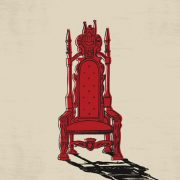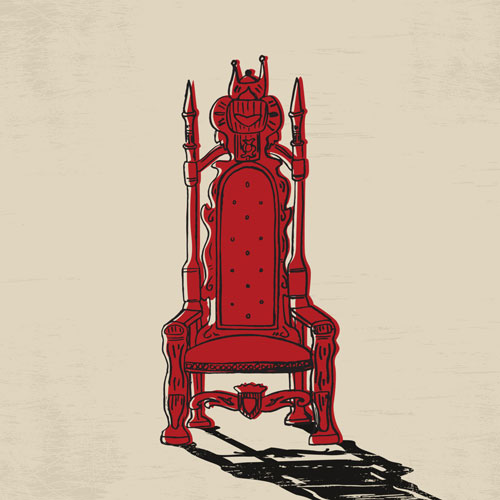Fallen
Wer sich mit den Gefangenen beugen will, der muss mit den Erschlagenen fallen (Jesaja 10,4)
Das mächtige assyrische Reich bedrohte das Königreich Israel, und sie waren nicht bereit sich dieser Bedrohung zu stellen. Sie waren in politischer, militärischer und vor allem geistlicher Hinsicht nicht bereit dazu. Ihre einzige Hoffnung lag darin, sich ganz auf den Herrn zu verlassen, aber das taten sie nicht. Sie wollten unabhängig sein von ihrem Gott, und ihre „Unabhängigkeitserklärung“ würde zu ihrem Verderben werden.
Ihr Verderben kam nicht direkt von einem rachedurstigen Gott. Indem Israel sich von Gott unabhängig erklärte, säten sie ihre eigene Zerstörung. Als die Bedrohung durch die Assyrer kam, ließ Gott sie einfach auf ihrer eigenen Füßen stehen. Doch sie konnten nicht stehen, also fielen sie.

Darum sagte Gott: „Wer sich nicht mit den Gefangenen beugen will, der muss mit den Erschlagenen fallen.“ Alles was Gott tun musste, um hartes Gericht über sie zu bringen, war, Seinen Schutz wegzunehmen. Der Herr sagt: „Ohne mich gibt es keine Hoffnung für euch.“ Für lange Zeit lebte Israel in ihrer Anbetung und ihrem Gehorsam ohne Gott. Nun standen sie vor ihren Feinden ohne Gott. Es ist eine schmerzhafte Wahrheit – wenn wir Gott lange genug ablehnen, gibt Er uns genau das, was wir wollen. Uns ist nicht klar, wie sehr wir Gott brauchen, bis wir an den Punkt kommen, an dem die Israeliten hier waren, und wir uns ohne Gott wiederfinden.
Tragischerweise konnten sie nicht stehen bleiben. Stattdessen war ihre Position das Gegenteil davon – sie mussten sich beugen. Wenn die Assyrer andere Nationen eroberten, reichte es ihnen nicht zu gewinnen. Sie hatten ein perverses Vergnügen daran, ihre Feinde zu demütigen und zu knechten. Sie taten alles, um sie zu erniedrigen. Hier sagt Gott: „Ihr habt mich zurückgewiesen, also werdet ihr euch ohne Mich in Demütigung und Erniedrigung vor euren Feinden beugen.“
Sich zu beugen ist nicht immer schlecht. Ein hebräisches Wort des Alten Testaments, das mit Anbetung übersetzt wird, ist das Wort shachah. Es bedeutet, sich in Ehrfurcht zu beugen oder jemanden zu huldigen. Doch Jesaja 10,4 benutzt ein anderes Wort für beugen: das hebräische Wort kara. Es ist kein gutes Wort; es bedeutet zu versinken, herunter zu fallen, zu erniedrigen oder zu unterdrücken. Israel hatte die Wahl – sich auf gute Weise vor einem liebenden Gott zu beugen, oder auf demütigende Weise vor seinen Feinden. Was würden sie tun?









